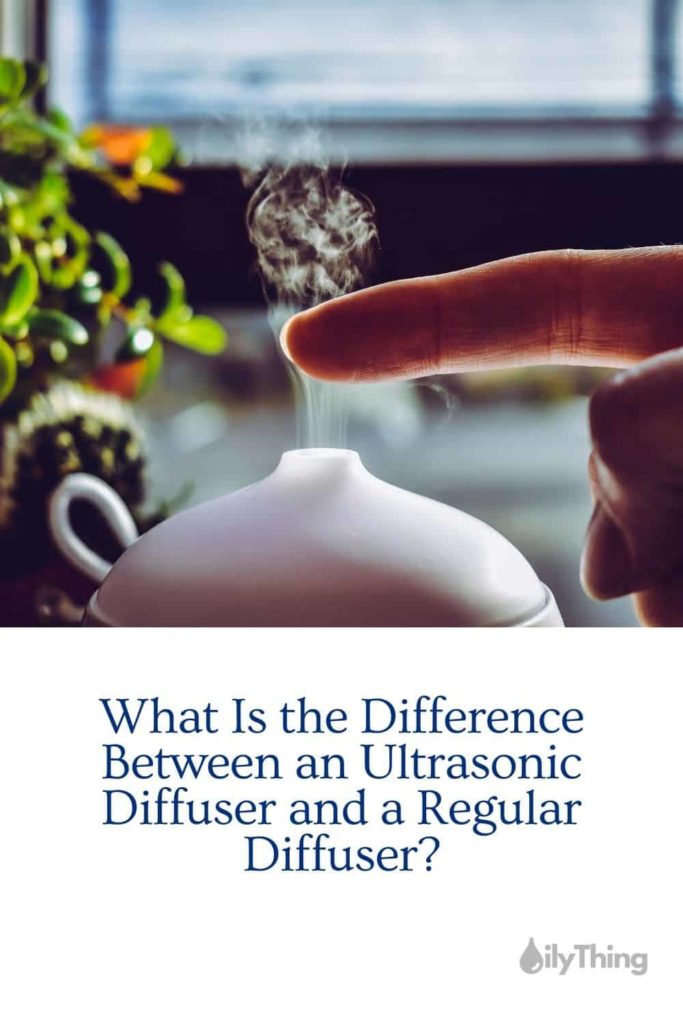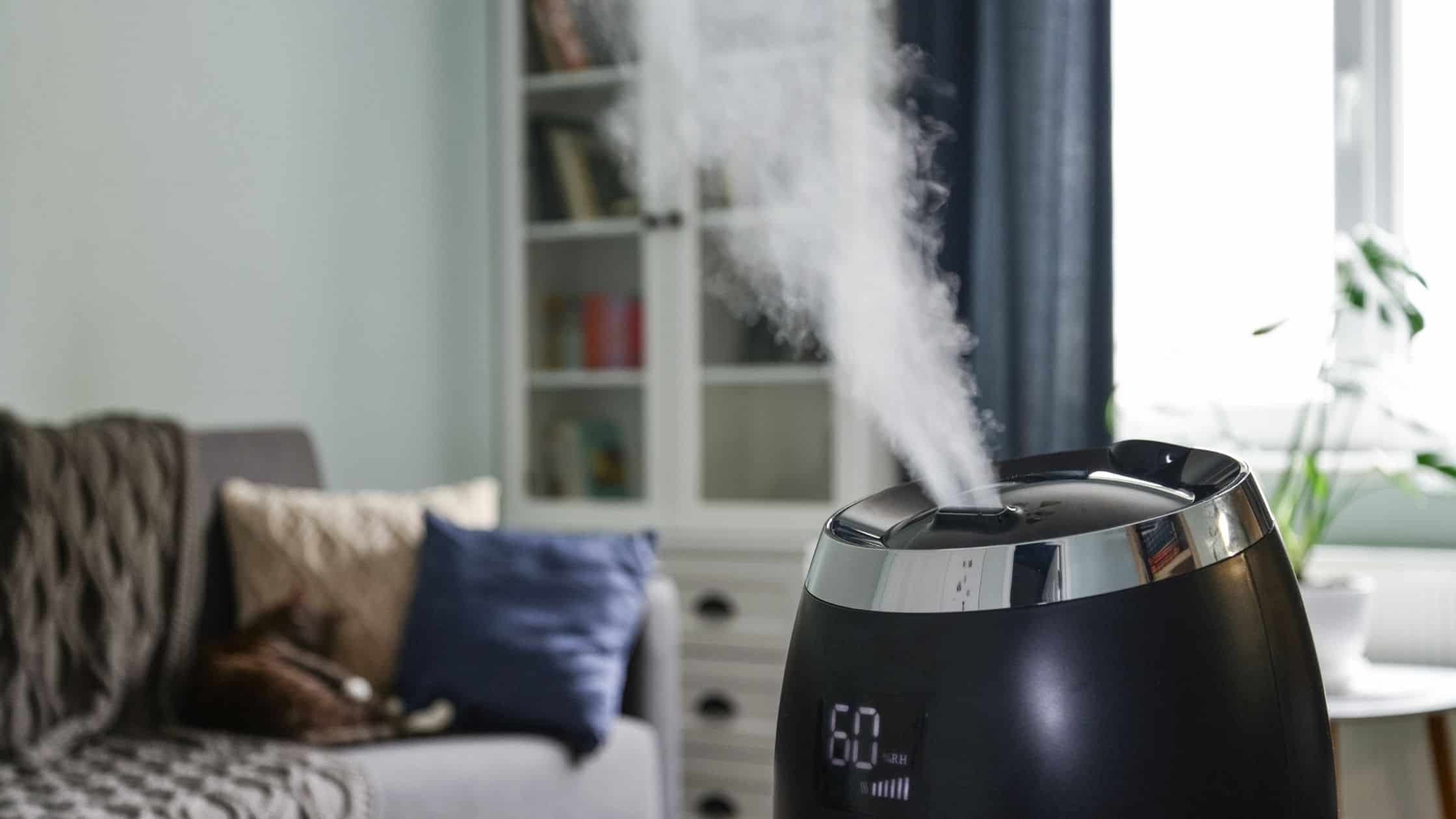I love essential oils. I use them for so many reasons. I started using them topically, but I soon wanted to use them for aromatherapy. That led me to start researching diffusers. Who doesn’t want their space to smell amazing?
This article covers the following topics:
- What Is an Essential Oil Diffuser?
- Types of Diffusers
- How Does the Ultrasonic Diffuser Work?
- Benefits of Ultrasonic Diffusers Compared to Other Types
- Pros and Cons of Ultrasonic Diffusers vs. Regular Diffusers
- What’s the Best Type of Essential Oil Diffuser?
- Final Thoughts
Well, it turns out that there are a few different types of diffusers. There is a difference between an ultrasonic diffuser and a regular diffuser. In this article, I share the similarities and differences so that you can get the one that works best for you.
What Is an Essential Oil Diffuser?
An essential oil aromatherapy diffuser can make your space smell and feel like a spa. It disperses small droplets of essential oil into the atmosphere, freshening the scent in the air and delivering the benefits of essential oils.
Diffusers work by breaking down essential oils into smaller molecules and expelling the oils into the air. They deliver the particles at a comfortable concentration that’s not too strong.
Types of Diffusers
There are four different types of essential oil diffusers:
- Nebulizing diffusers – These don’t require heat or water. They use pressurized air to disperse a fine mist of oils into the air.
- Ultrasonic diffusers – These require you to dilute the essential oil with water. The ultrasonic diffuser uses electronic frequencies to transform the liquid into a mist. They also send moisture into the air and can be used as a diffuser and a humidifier.
- Evaporative diffusers – These deliver aromatherapy by using a fan to change the oil into a gas. Therefore, they don’t emit moisture particles. However, this type of diffuser causes the oil to lose some of its potency as it evaporates.
- Heat diffusers – These diffusers warm up the oil to turn it into gas. In doing so, however, it could change the chemical composition of the oil, weakening its therapeutic benefits.
As you can see, there are several types of diffuser. There is no “regular” aromatherapy diffuser. The ultrasonic diffuser differs from the others in that it humidifies the air and doesn’t change the properties of the essential oil blend. In the next section, we’ll learn more about how the ultrasonic diffuser works.
How Does the Ultrasonic Diffuser Work?
Because you see moisture coming out of the electronic diffuser, you might think that it’s steam. However, it’s not technically steam because the diffuser doesn’t heat the liquid. Instead, the diffuser works by creating ultrasonic vibrations via a small disc below the surface to agitate the water and essential oil blend.
As the liquid is disturbed, the essential oils break down into base molecules. The fine mist of water that comes out also contains essential oils, which are diffused into the air.
Benefits of Ultrasonic Diffusers Compared to Other Types
Ulatrasonic diffusers have several benefits. First of all, they’re often the most affordable diffuser on the market. The purchase price is usually lower than that of a nebulizing diffuser. Moreover, ultrasonic diffusers use less oil.
With a nebulizing diffuser, you don’t mix the essential oil with another liquid. The machine uses the oil directly. You can go through a lot of pure essential oils that way, and it can get expensive. A nebulizing diffuser typically uses at least 20 drops of essential oil per session, whereas an ultrasonic diffuser might use just one.

Ultrasonic diffusers also run longer than nebulizing diffusers before they need to be refilled. They can run for up to 24 hours without being replenished.
Ultrasonic diffusers don’t require much power. They also serve as humidifiers, putting a fine mist of water into the air. This is beneficial for most people, especially in the winter. Moisture in the air can soothe dry skin and irritated sinuses.
But dirty humidifiers can cause problems for people with allergies or asthma because they can breed mold. Luckily, ultrasonic diffusers are some of the easiest to clean. They also don’t put out as much moisture as a larger humidifier and shouldn’t create a dampness issue in your space.
Pros and Cons of Ultrasonic Diffuser and a Regular Diffuser
There are pros and cons to using an ultrasonic diffuser. Some people might want to purchase a different type for their needs.
If you live in a humid area, too much moisture in the air could cause problems. You could combat this by running the air conditioner more often or operating the diffuser less frequently, especially in humid weather. A nebulizing diffuser might be an option if you’re concerned about humidity levels.

An ultrasonic diffuser doesn’t deliver as much concentrated oil into the atmosphere as a nebulizing diffuser does. That might be ideal for people with pets or children, however. Essential oils are powerful, and you don’t want them to be too strong. But if you want a higher concentration of oil in the air, you might want to use a nebulizing diffuser.
Finally, ultrasonic diffusers are quieter than many other types. If you want to take advantage of the benefits of aromatherapy while you sleep or watch TV, you don’t have to worry about the loud noise interfering with your relaxation.
What’s the Best Type of Essential Oil Diffuser?
The best essential oil diffuser depends on your needs. If you don’t need extra humidity in your space, you might not want an ultrasonic diffuser. However, if you want to run the diffuser for longer periods of time and save money and oils, the ultrasonic diffuser is the way to go. Nebulizing diffusers are stronger, but you don’t want to run them all day, or you’ll go through your oils quickly.
If you’re looking for an ultrasonic essential oil diffuser, consider the lighting. Some have lights that change color or can be turned off. Others don’t let you change the light settings. If you’re planning to use the product while you sleep, you might want to opt for one that can go dark. Stay away from heat-based diffusers. Those compromise the benefits of the essential oils.
Final Thoughts
Whatever you choose, make sure that it’s high quality so that you get the maximum benefits. Ultrasonic diffusers are great all-around options. However, if you have limited access to water or don’t want to worry about filling the reservoir, you might want to choose a nebulizing diffuser. Just remember that it won’t deliver moisture into the air, and it will use up your oils quickly.

